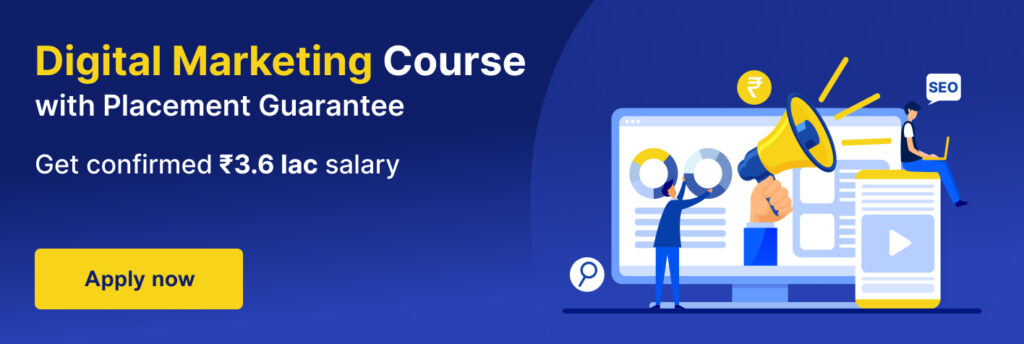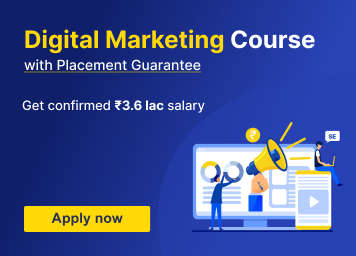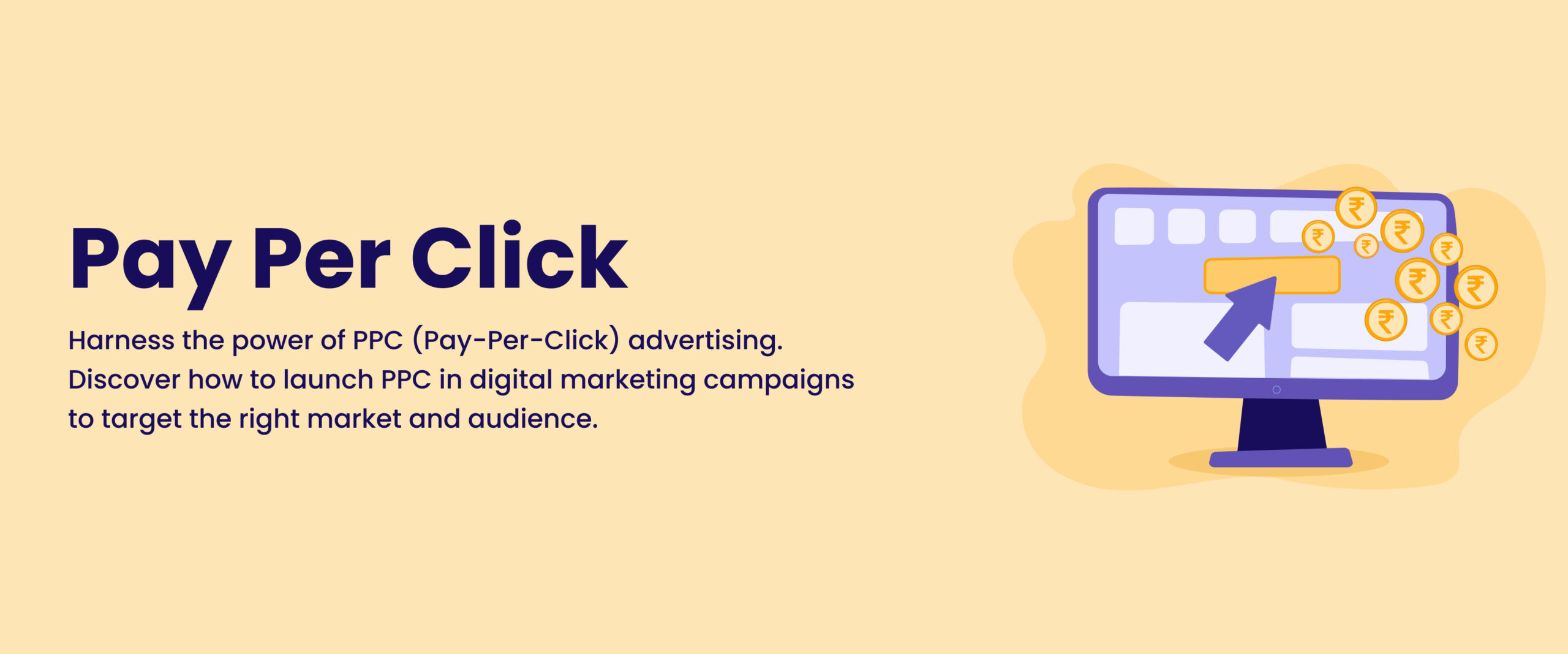The Power of Pay-Per-Click (PPC) Marketing in the Digital Age
Did you know that in the constantly changing realm of digital marketing, there’s a strategy that has endured and demonstrated its value? Pay-per-click (PPC) marketing is that very strategy. This dynamic approach has redefined the way businesses connect with their target audience and achieve their marketing goals.
In this blog, we will explore the world of PPC marketing, its significance in digital marketing, and its pivotal role in shaping the online marketing world.
What is PPC Marketing?
PPC marketing is often referred to as pay-per-click advertising or simply pay-per-click. It is a digital advertising model that allows businesses to place their ads on various online platforms. The unique aspect of PPC lies in its payment structure – advertisers only pay when a user clicks on their ad, hence the name pay-per-click. Learn digital marketing to know more about PPC and other digital marketing techniques.
What is PPC in Digital Marketing?
PPC in digital marketing refers to the integration of strategies within the broader context of online marketing. It encompasses not only search engine advertising but also display ads, social media advertising, and even video advertising. This multidimensional approach ensures that businesses can connect with their audience across various touchpoints, increasing brand visibility and engagement.
Importance of PPC in Digital Marketing
Pay-per-click (PPC) advertising holds significant importance in the world of digital marketing for several reasons:
- Targeted Reach- PPC allows businesses to narrow down their target audience using various criteria such as keywords, location, demographics, interests, and even the devices being used. This precision ensures that ads are shown to people who are more likely to be interested in the product or service being advertised.
- Cost Control- With PPC, you only pay when someone clicks on your ad, hence the name. This means you’re directly paying for actual engagement rather than just ad views. Additionally, you can set daily or campaign budgets to manage costs effectively.
- Immediate Results- Unlike some other digital marketing strategies, PPC delivers quick results. As soon as your campaign is approved, your ads start appearing, potentially driving immediate traffic and conversions to your website.
- Measurable Performance- PPC platforms provide detailed analytics and performance metrics, allowing you to track the effectiveness of your campaigns. You can monitor clicks, impressions, conversions, and other important data, enabling you to refine your strategy for better results.
- Flexibility and Customization- PPC campaigns can be easily adjusted and optimized based on real-time data. You can experiment with different ad copies, keywords, and targeting options to find the best combination that delivers the highest ROI.


How PPC Marketing Works
The mechanism of PPC (Pay-Per-Click) advertising is a method used by businesses to display their ads to potential customers online. Here’s an explanation of the process:
- Keyword Research – The process begins with businesses identifying relevant keywords and phrases that potential customers might use when searching for products or services. These keywords are crucial as they determine when and where the ads will appear.
- Ad Creation – Businesses create ads that are specifically tailored to the chosen keywords. These ads usually consist of a headline, a description, and a link to the business’s website or landing page. The goal is to make the ad attractive and relevant to the user’s search intent.
- Bid Auction – When a user enters a search query that matches the chosen keywords, an auction takes place. Advertisers bid on how much they are willing to pay for each click on their ad. The bid amount, however, isn’t the sole factor in ad placement.
- Ad Rank Calculation – Ad position is determined by a combination of the bid amount and the ad’s relevance to the search query. This relevance is often measured by a quality score assigned by the advertising platform, which takes into account factors like ad click-through rate (CTR), ad relevance, and landing page quality.
- Ad Display – Based on the bid amount, ad relevance, and other factors, the advertising platform selects which ads to display for a particular search query. The highest-ranking ads appear prominently, usually at the top of the search results page.
- Clicks and Charges – When a user clicks on an ad, the advertiser is charged a certain amount from their budget. Hence the term Pay-Per-Click. The cost of each click varies depending on factors like competition for keywords and the quality of the ad campaign.
- Landing Pages – Clicking on the ad takes the user to a specific landing page on the advertiser’s website. The landing page should be directly relevant to the ad and provide the information or products/services the user is looking for.
- Tracking and Analysis – Advertisers continually monitor the performance of their PPC campaigns. They track metrics like click-through rates, conversion rates, and return on investment (ROI) to assess the effectiveness of their ads and make necessary adjustments.
The Future of Pay-Per-Click (PPC) Marketing
As the digital landscape continues to evolve, the future of PPC marketing holds exciting possibilities fueled by technological advancements and changing consumer behaviors. Here are some of the key trends and innovations that are shaping the trajectory of PPC marketing:
- Voice Search Optimization – The rise of voice-activated devices and virtual assistants has led to an increase in voice searches. Marketers need to adapt their PPC strategies to accommodate natural language queries and long-tail keywords that users are likely to use in voice searches. Voice search optimization is set to become a critical factor in PPC success.
- AI-Powered Personalization – Artificial intelligence is transforming how PPC campaigns are managed and optimized. AI algorithms can analyze user data to deliver highly personalized ad experiences. From tailored ad copy to dynamic pricing based on user behavior, AI-driven personalization enhances engagement and conversions.
- Automation and Smart Bidding – Automation tools powered by AI and machine learning are streamlining PPC campaign management. Smart bidding strategies, such as target CPA (cost per acquisition) and target ROAS (return on ad spend), enable advertisers to optimize bids based on their specific goals, leading to more efficient allocation of budgets.
- Privacy and Data Protection – With growing concerns about privacy and data protection, marketers need to navigate evolving regulations, such as GDPR and CCPA. Advertisers will have to prioritize transparency in data collection and usage, ensuring that user information is handled responsibly in their PPC campaigns.
- Visual and Video Search – Visual and video search technologies are gaining traction, allowing users to search using images or videos instead of text. Optimizing PPC campaigns for visual and video search involves leveraging visual content, such as product images and videos, to capture users’ attention and drive conversions.
- Augmented Reality (AR) and Virtual Reality (VR) – AR and VR are creating new avenues for immersive advertising experiences. Businesses can use AR to allow users to visualize products in their real-world environment before making a purchase. VR, on the other hand, offers opportunities for immersive storytelling and brand engagement.
- Cross-Device Tracking and Attribution – Consumers interact with brands across multiple devices and touchpoints. Cross-device tracking and attribution aim to provide a holistic view of user interactions, helping marketers understand the complete customer journey and allocate credit accurately to each touchpoint.
- Sustainable and Ethical Advertising – As sustainability and ethical considerations become more prominent, businesses are expected to integrate these values into their PPC campaigns. Consumers are drawn to brands that align with their values, and incorporating sustainability messaging can enhance brand credibility.
Want to master paid marketing? Explore the best Digital Marketing course with placement and get a confirmed ₹3.6 lac salary.
Conclusion
The future of pay-per-click marketing hinges on innovation, adapting to evolving consumer behaviors, and utilizing technologies like voice search, AI-driven personalization, automation, data privacy, visual and video search, AR/VR experiences, and ethical advertising. Staying updated with emerging trends and leveraging cutting-edge tech is vital for meaningful ad experiences, ensuring business success in the dynamic realm of PPC marketing.






